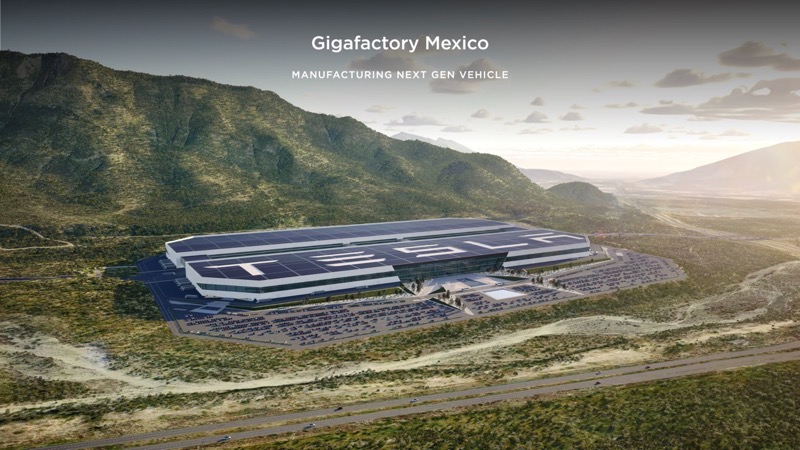
Tesla Proposes Factory in India Amid Import Tax Standoff: Report

Gigafactory Mexico–India Next?
Tesla has reportedly put forward a proposal to Indian government officials to establish a factory in the country on Wednesday. The facility would be used to manufacture electric vehicles for both domestic and international markets, according to a source with direct knowledge of the matter, reports Reuters.
This move comes after a stalemate last year when India refused Tesla’s request to lower import taxes on cars, which can climb up to 100%. India had urged Tesla to produce vehicles locally, but the automaker intended to first test the Indian market with imports, leading to an impasse in the negotiations.
While the recent discussions with Indian officials didn’t touch upon the subject of lowering import taxes, Tesla put forth the idea of a new factory. However, the carmaker didn’t specify a location or the potential investment involved, said the source, who wished to remain anonymous due to the confidential nature of the talks.
This proposal for local production falls in line with Indian Prime Minister Narendra Modi’s “Make in India” initiative. This campaign is especially appealing to companies looking to expand their supply chains beyond China.
As reported by Reuters on Tuesday, top Tesla executives are in India this week for meetings with the government regarding local sourcing of parts and other issues.
On Wednesday, Tesla representatives met with officials from Modi’s office and other ministries, according to the source and another individual familiar with the matter.
Tesla’s rekindled interest in India comes nearly a year after it suspended plans to sell cars in the country due to high import taxes. Tesla’s CEO, Elon Musk, has previously stated these taxes to be among the highest globally.
Despite hiring a local team and initiating a search for showroom space last year, Tesla had to abandon these plans.
These discussions take place just weeks before Prime Minister Modi’s scheduled visit to the United States in June.
Tesla needs more Gigafactories to reach its goal of producing 20 million electric vehicles per year. India might be a good market to debut an entry-level next-gen EV, don’t you think?